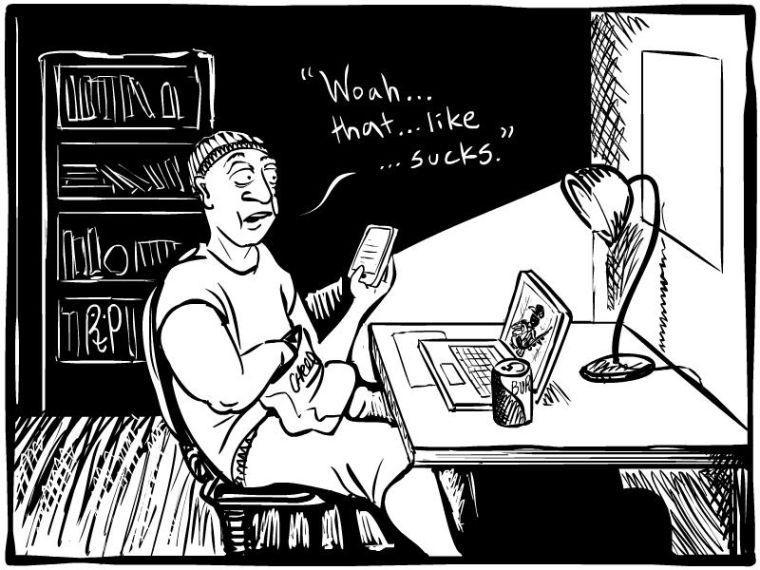I have to applaud the creative efforts of Invisible Children. The organization has proven success when it comes to creating awareness.
My generation has never cared so strongly about any movement that doesn’t directly affect us.
Why aren’t we reposting and retweeting this much about our own problems on this campus, in this city or in this country?
I am not against the KONY 2012 movement or its mission. I acknowledge Invisible Children has struggled for Ugandan children since before last week.
Instead, I’m serving as the annoying critic who doesn’t feel that this country is in any position to be so proactive about another place while our own still needs that attention.
It’s mind-boggling that we are ready to sign the KONY 2012 petition and put up posters on April 20, but will not give a dollar to the homeless man at the gas station and will carelessly throw away lunch that we don’t feel like finishing.
Are we so content with our own national debt, poverty level, health care and military that we can channel all our efforts to helping out another country? How are we able to stand behind a mission for somewhere else so intensely without possessing that drive for our own country?
In less than two days, more than 50 million people took a side to an issue they that met them on their Facebook feed. They were shown a problem and solution in less than 30 minutes on a social site.
This organization presented a clear plan, added the necessary elements to grab the attention of its audience and displayed the message through a non-traditional channel – which proved some success.
However, the World Wide Web is a vast medium, and I’m sure Invisible Children was not expecting such a response. Yet the viral success isn’t surprising when the message is displayed on sites that are accessed by millions on a daily basis.
Invisible Children created so much of an impact with its one video that the organization recently added a critiques section to its website. In the section, they respond to misconceptions and provide details and sources for those against its mission.
The Internet has websites other than YouTube, Facebook and Twitter. At any time, one can look up information about Invisible Children, the statistics provided by the ISS or the domestic issues we currently face here in America.
What I’m saying is we shouldn’t need a video to go viral to be informed about such an important problem, especially since America has been using social media in every way possible to get citizens involved in domestic issues.
I am curious as to what type of video we need to create a similar response against human trafficking, lowering our poverty levels or ending pollution.
Invisible Children is using the “2012” concept it created by getting 20 of America’s culture makers and 12 of America’s policy makers to get involved through donation and social media, which is a great idea. But these are the same influential people in our society pushing consistently for other cause – yet America has never responded so well.
Invisible Children has brought many things to our attention apart from Joseph Kony and the Lord’s Resistance Army. The organization has shown the world that social media can be used effectively for awareness and education purposes in a short time span when done correctly.
Invisible Children has also shown us that the youth in America do believe in equality and justice, as long as they can make it in time for “American Idol.”
I’d just mandate all history lessons through YouTube.
Marie-Therese Yokum is a 19-year-old mass communications and finance sophomore from Lafayette. Follow her on Twitter @TDR_myokum.
____
Contact Marie-Therese Yokum at myokum@lsureveille.com
Head to Head: Viral trends overshadow domestic problems
March 11, 2012





